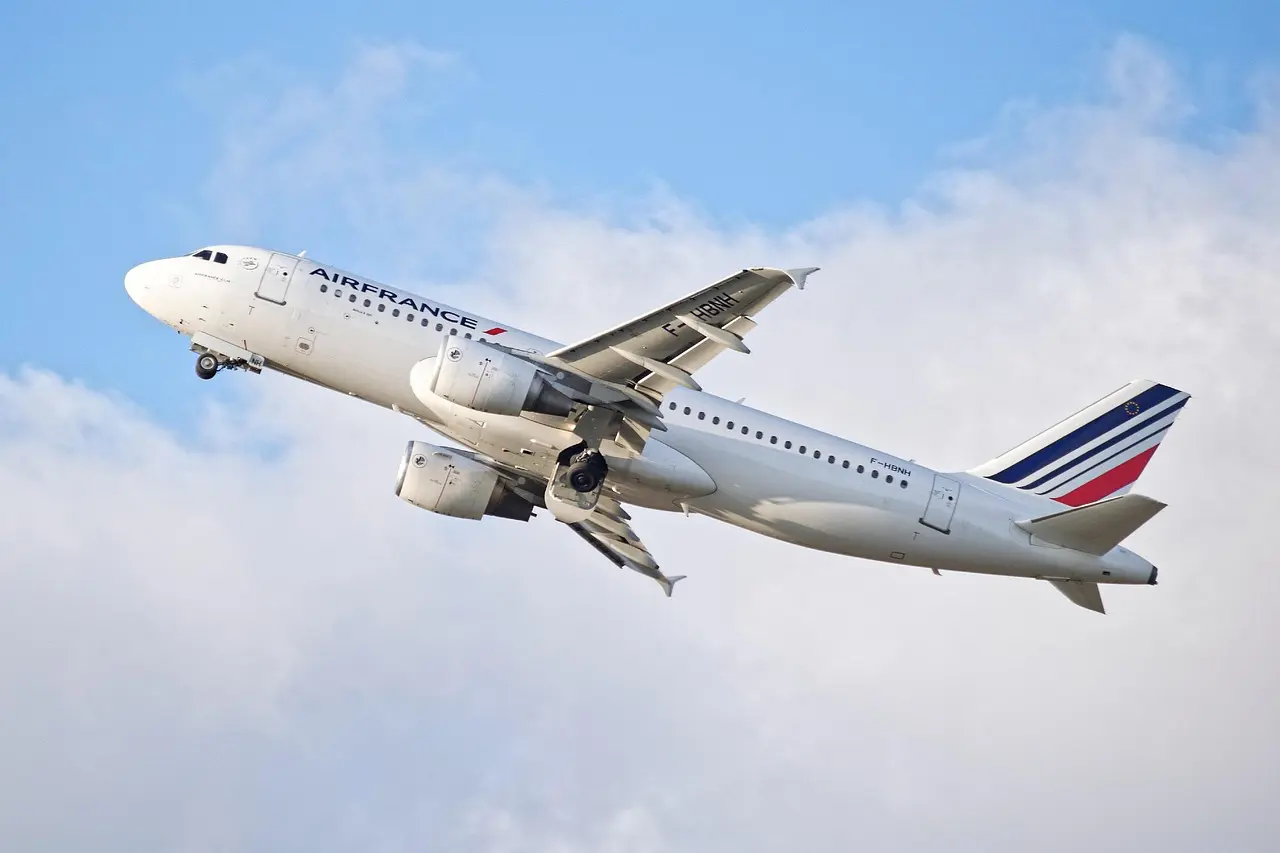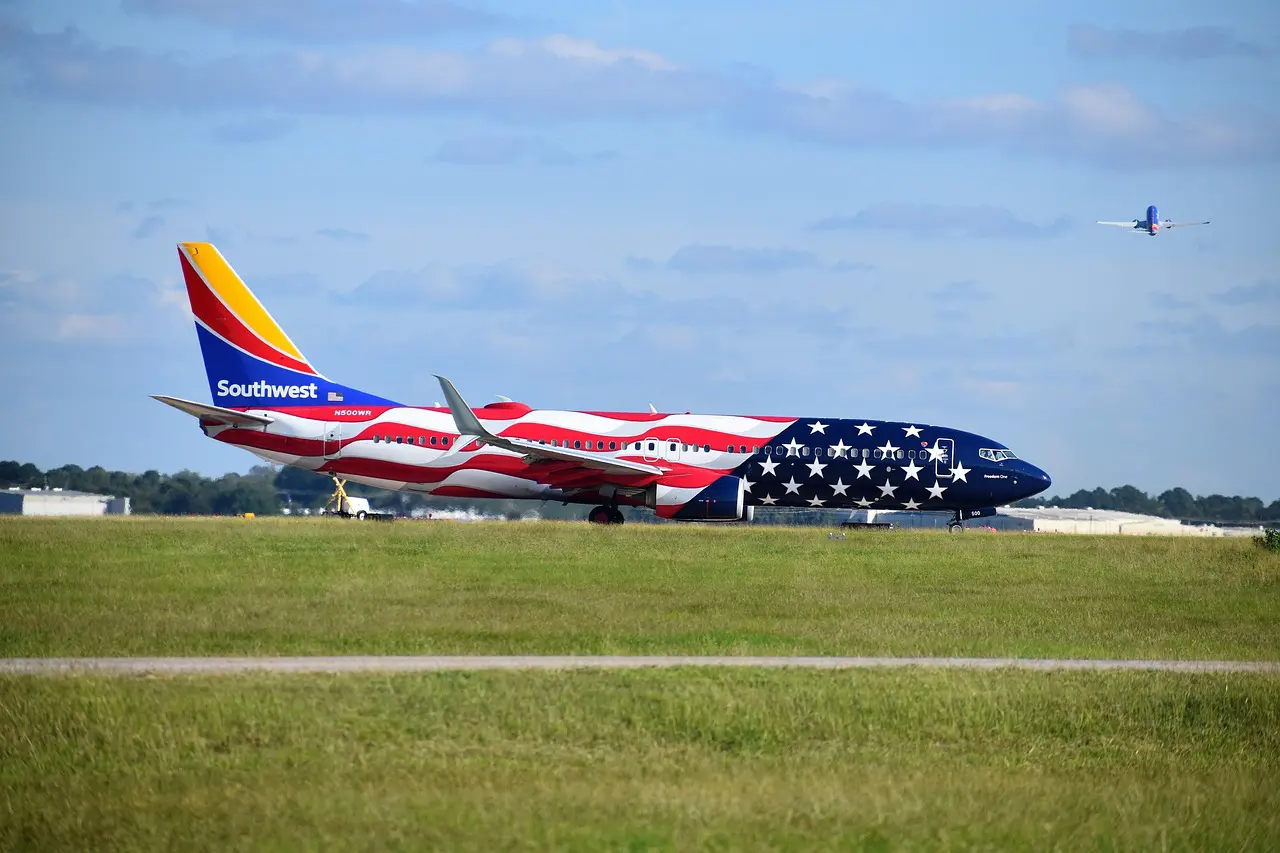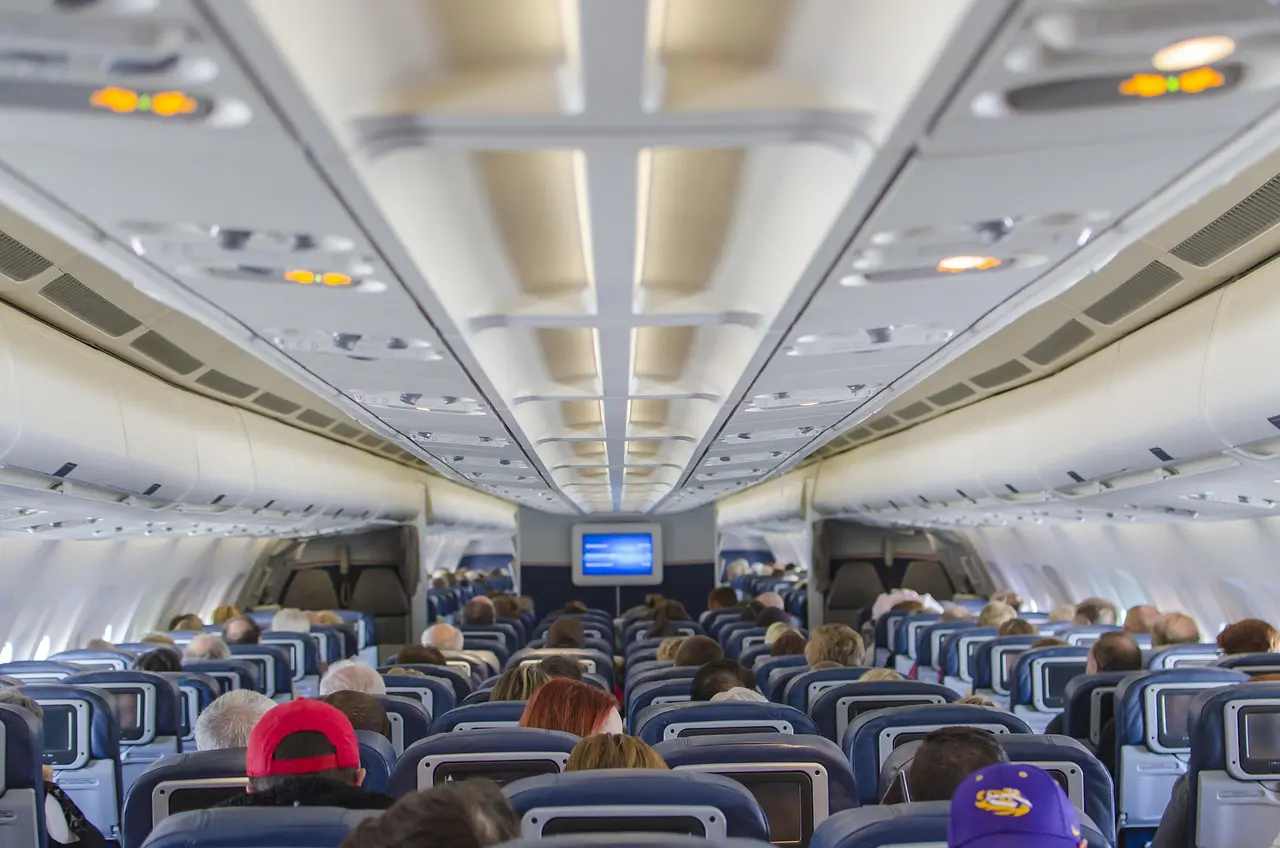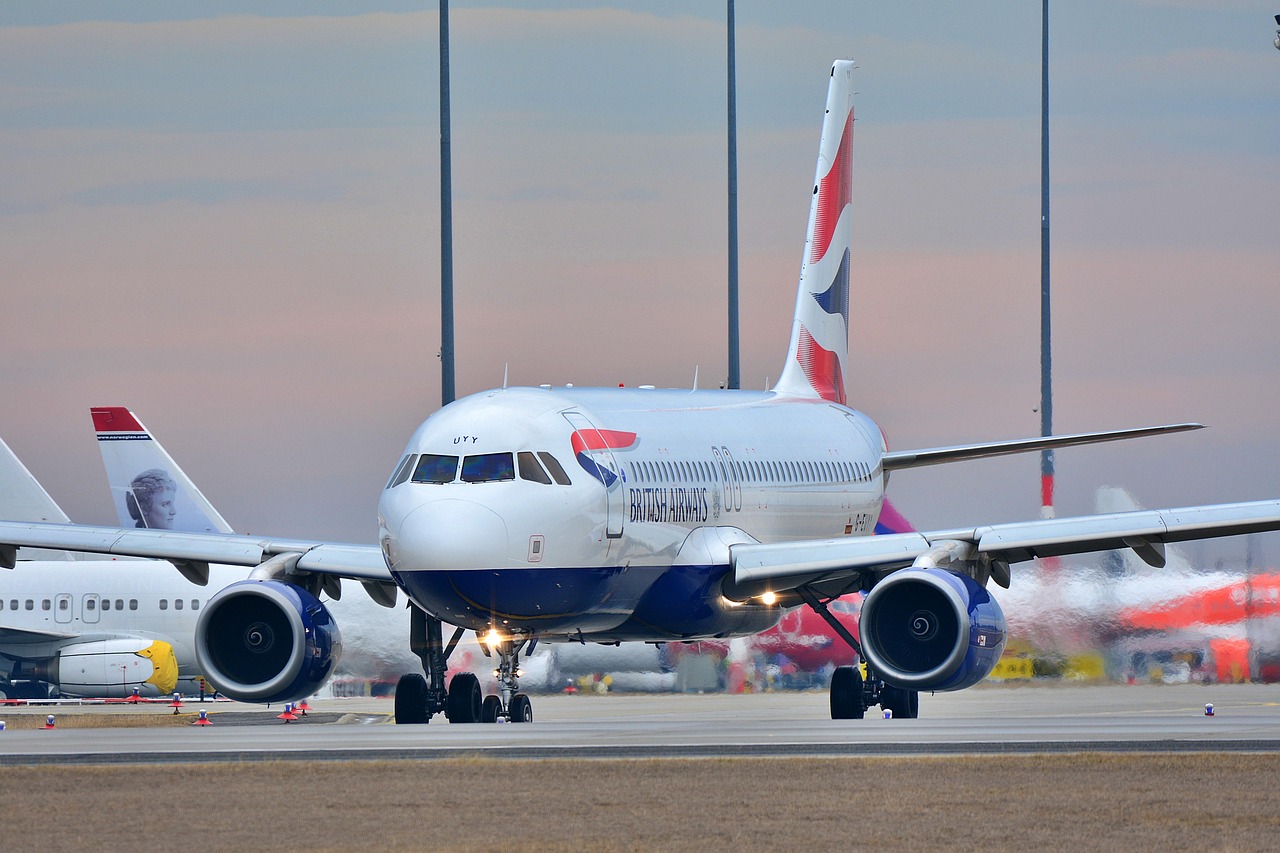If you’ve ever sat on a plane and watched someone argue with a flight attendant, refuse to stash their bag, or loudly insist that airplane mode is “optional,” you’ve probably thought: This is going to end badly.
In France, it can now – very badly.
A new aviation decree introduced by the French government has quietly rewritten the rulebook on in-flight behaviour. Under this regulation, disruptive passengers can face fines of €10,000 to €20,000, and, in more serious cases, a four-year ban from boarding French-licensed flights.
This isn’t a rumour or a viral headline. It’s the law (Decree No. 2025-1063 that took effect on November 8). And it marks one of the toughest crackdowns on unruly air passengers anywhere in Europe.
Why France Is Cracking Down So Hard
The decision didn’t come out of nowhere. Reports from aviation authorities paint a picture of air travel becoming increasingly stressful for crew and travellers.
According to IATA, airlines recorded one unruly incident for every 395 flights in 2024 – a number the industry describes as “unacceptably high.” Across Europe, EASA documented hundreds of incidents each month, from passengers refusing instructions to violent altercations.
French officials say they’ve simply had enough. As the Transport Ministry put it:
“Disruptive behaviour on board aircraft is unacceptable. It jeopardises flight safety and compromises the working conditions of flight crews.”
It’s a firm message – and one backed by serious consequences.
These new in-flight misconduct penalties reflect a growing global effort to make air travel safer and to ensure passengers take airline safety rules seriously.
Why Passenger Misconduct Has Exploded in Recent Years
While unruly behaviour on aircraft has existed since the earliest days of commercial aviation, the frequency and intensity of incidents have noticeably escalated in recent years. This isn’t purely anecdotal – regulators, crew unions, and airlines have traced a combination of social, psychological, and operational factors contributing to the surge.
One major cause is the lingering emotional aftershock of the pandemic. Several aviation bodies have noted that passengers now board flights carrying higher stress levels, lower patience thresholds, and increased anxiety around delays, proximity to strangers, and disrupted routines. Crowded airports, long queues, and short tempers have become a volatile mix in a confined cabin environment.
Another contributing factor is alcohol consumption, both in airports and on board. Many incidents begin before boarding even starts. With travellers drinking during long delays, pre-departure anxiety or frustration often spills into the cabin. Even when alcohol isn’t the catalyst, exhaustion and dehydration – both common in air travel – amplify irritability and reduce impulse control.
Add to that the modern travel experience: tighter seating, filled overhead bins, lost baggage, and busy holiday seasons. Cabin crew have reported passengers becoming quicker to challenge instructions or argue about seating assignments, personal space, or perceived inconveniences.
Technology has also played a subtle but powerful role. The presence of smartphones and social media means passengers increasingly record incidents, escalate arguments to “prove a point,” or react defensively when staff ask them to stop filming. In some cases, a minor disagreement becomes a viral performance.
For many crew members, the shift has highlighted a deeper issue: basic air travel etiquette is being forgotten, making it harder to maintain a calm and safe cabin environment.
Airlines and regulators stress that these behaviours don’t just create discomfort – they directly interfere with safety, especially during taxi, take-off, and landing, when compliance must be immediate.
With the number of flights rising and cabins fuller than ever, authorities argue the crackdown is less about punishment and more about restoring order in an environment that relies on shared cooperation.
What the New French Rules Actually Mean
The law applies to any passenger flying with a French-licensed carrier – not just French nationals. So whether you’re London-based and catching a cheap hop to Paris, or flying long-haul to Reunion Island, the same rules follow you onboard.
The offences that trigger fines or bans include:
- refusing a crew member’s instruction,
- obstructing crew duties in any way,
- and using electronic devices when told not to.
That last one raises eyebrows, of course. But the intention isn’t to slap someone with a €10k penalty for forgetting to flick airplane mode on. It’s to prevent the escalating pattern of passengers arguing with crew and refusing to comply – behaviours that repeatedly lead to diversions, safety risks, and sometimes even violence.
Refusing crew instructions is one of the most common triggers of in-flight incidents, and under modern airline regulations, even a small act of non-compliance can escalate into a reportable offence.
When Bad Behaviour Turns Into Real Consequences
Even before the French decree, the skies were filled with stories proving just how quickly unruly behaviour can spiral.
A shocking case last year involved a transatlantic flight forced to U-turn mid-journey after a passenger reportedly attacked two teenagers with a fork. The diversion cost the airline tens of thousands of pounds, and the suspect now faces multiple criminal charges.
Another widely reported incident saw Ryanair suing a disruptive passenger for €15,000 after a Dublin–Lanzarote flight diverted when a traveller refused to comply with the crew and behaved aggressively. All 160 passengers on board had their holidays thrown into chaos.
Flight crews emphasise that any behaviour causing a diversion has severe consequences because diversions endanger schedules, increase costs, and place major strain on airline operations.
And a case that moved swiftly through the European press involved a woman who allegedly vaped onboard a Tenerife–Glasgow flight, then became combative and head-butted fixtures after landing. A video of the scene spread across TikTok within hours, drawing millions of views and sparking debates about air-travel etiquette.
With incidents like these becoming the norm rather than the exception, it’s no wonder France is using fines as deterrence.
The Awful Behaviours That Drive Everyone Mad
Every frequent traveller has witnessed an in-flight incident brewing. It usually begins with a small refusal – a bag that won’t be stowed, a seat that absolutely must recline during take-off – then escalates into confrontation.
Some of the behaviours cabin crew repeatedly cite as the most difficult include:
- passengers who refuse to obey the seatbelt sign and roam the cabin whenever they choose,
- travellers who ignore instructions about electronic devices during take-off and landing,
- those who drink excessively, sneak alcohol onboard, or become loud and unpredictable,
- passengers who verbally abuse crew members or other travellers,
- and those who tamper with equipment or crowd the galley during service.
Even something as mundane as refusing to switch seats for safety reasons has caused altercations that forced ground delays and diversions.
These are the kinds of disruptions the French decree is targeting: the moments when a traveller decides they know better than trained flight staff – and everyone else ends up paying for it.
How France’s Rules Compare to Other Countries
France’s penalties may sound dramatic, but the country is far from alone in cracking down on unruly behaviour in the skies. Around the world, regulators have been updating their penalties to deal with the modern wave of air rage, and when viewed in context, France’s fines fit into a broader global trend.
In the United Kingdom, the Civil Aviation Authority (CAA) can impose fines of up to £5,000 for disruptive behaviour, with more serious cases carrying the possibility of up to two years in prison. Altering or damaging safety equipment – such as tampering with a smoke detector – can trigger criminal prosecution. Airlines are also increasingly pushing for passengers to be blacklisted across carriers.
In the United States, the Federal Aviation Administration (FAA) operates under a strict “zero tolerance” policy. Passengers can face fines of up to $37,000 per violation, which means one incident can quickly snowball into six-figure penalties if multiple rules were broken. Several cases in recent years involved passengers facing fines exceeding $80,000 after physical altercations.
Australia is similarly tough. Disrupting or assaulting a crew member can result in fines of up to AUD $15,000, and in severe cases, prison sentences. The country enforces strict rules around intoxication and has removed passengers from flights for refusing to stop drinking mid-air.
Compared to these examples, France sits in the middle of the spectrum. What makes the French decree stand out is the administrative simplicity: airlines can report passengers directly, and fines can be issued without lengthy court processes. For aviation experts, this is what makes the new system uniquely powerful – and likely effective.
When viewed together, these examples show just how varied global airline regulations can be, yet they all share the same message: passengers must follow safety rules, respect crew, and avoid disruptive behaviour at all costs.
Why Respect Matters More Than Ever
Flying today is an exercise in shared space: hundreds of strangers, each with their own anxieties, comforts, expectations, and boundaries. When one person ignores that social contract, the entire cabin feels it.
And for the crew, the stakes are far higher. Flight attendants aren’t there simply to serve food – they are the safety officers of the aircraft. Their ability to give instructions and be obeyed immediately is what keeps everyone secure when turbulence hits, when medical emergencies occur, or when something more dangerous unfolds.
In a world where a single diversion can cost an airline tens of thousands of euros, and where aggressive behaviour can traumatise staff and passengers alike, France’s message is simple:
Respect isn’t optional. It’s part of the ticket.
What Actually Happens When a Passenger Is Reported
Most travellers never see what happens behind the scenes when someone causes trouble onboard, but the process is far more structured – and serious – than people assume. Airlines have strict, regulated procedures for documenting and escalating incidents, and the new French decree formalises an even clearer framework.
It typically begins when a crew member notes concerning behaviour: refusal to follow instructions, verbal abuse, aggressive actions, or anything that interferes with their duties. Crew are trained to attempt verbal de-escalation first. If that fails, they discreetly inform the cabin manager or purser, who determines whether the captain needs to be notified.
Once the captain is involved, decisions escalate quickly. The captain is the ultimate authority on the aircraft and has the legal right to divert, request emergency assistance, or instruct crew to restrain a passenger if safety is at risk. These decisions are never taken lightly – diversions cost tens of thousands of euros – but safety overrides everything.
During or after the incident, crew members fill out detailed reports documenting behaviour, exact statements made, actions taken, and witness information. Increasingly, airlines are equipping crew with body-worn cameras, providing additional evidence and protecting staff from false accusations. Many unions support these devices, seeing them as essential in an era of rising air rage.
Under France’s new system, these reports are submitted to aviation authorities, who log the incident into a national database. Passengers may be contacted for statements or informed of fines. Repeat offenders can be flagged, increasing penalties and potentially leading to long-term bans.
Importantly, the process continues even after landing. If police meet the aircraft — which is common in serious cases – passengers may be detained for questioning or charged under criminal codes, separate from administrative fines. In extreme cases, the airline may pursue civil damages to recover the cost of diversions.
For the average traveller, all of this remains invisible. But the message is clear: what once might have been brushed off as “annoying behaviour” now triggers real consequences.
The reporting process may seem invisible to most travellers, but it forms the backbone of how airlines enforce safety rules and hold disruptive passengers accountable.
What Travellers Should Do Now
If you’re passing through France or flying on a French-operated aircraft, it’s worth keeping the new penalties in mind – not because most travellers will ever come close to breaking the rules, but because the line between “minor disagreement” and “reportable offence” is now much clearer.
Follow instructions promptly.
Avoid escalating arguments.
If you feel mistreated, wait until landing to file a complaint.
And – perhaps most importantly – keep in mind that the crew aren’t the enemy; they’re the people responsible for getting everyone home safely.
A Changing Culture in the Skies
France’s crackdown isn’t happening in isolation. Airlines around the world have been tightening policies, installing body-cams on crew, and pressing for more authority in dealing with unruly passengers.
But France is the first European country to introduce administrative fines at this scale – and the travel world is watching closely.
We may soon see other nations introduce similar measures. And if that happens, flying could quickly become more orderly, more respectful, and far safer.
More Real Incidents That Illustrate the Problem
While the earlier examples already show how disruptive behaviour can escalate, several other recent cases across Europe and beyond highlight the everyday challenges airlines face.
On a London-bound flight in 2023, a man attempted to open an aircraft door mid-flight because he believed he was “being held hostage.” Thankfully, other passengers restrained him, and the aircraft made an emergency landing. Incidents like this underline how quickly irrational behaviour can compromise the safety of everyone on board.
Another case involved an EasyJet passenger who became verbally abusive after being denied additional alcohol. The confrontation escalated until the crew had no choice but to restrain him. Police met the aircraft upon landing, and the man faced multiple charges related to aggressive behaviour and disobeying the crew.
A widely discussed European incident concerned a mother who refused to buckle her toddler into a safety belt during turbulence. When the crew insisted, she began shouting and threatening the staff. The captain diverted the flight, citing safety concerns, and the family was removed by authorities. The incident sparked heated debates online about parental responsibility and crew authority.
These cases may seem extreme, but they are part of a rising pattern of behaviour that airlines and regulators can no longer ignore. Each diversion, confrontation, or moment of non-compliance has a cascading effect: delays, safety risks, unexpected costs, and emotional distress for everyone involved.
Why Flight Diversions Cost So Much
At first glance, it might seem surprising that a single disruptive passenger can cost an airline tens of thousands of euros. But the economics of aviation make diversions extraordinarily expensive, even when the aircraft only lands a short distance away from its intended route.
The largest cost is usually fuel. Some aircraft must dump fuel to land safely if they’re too heavy immediately after take-off. For long-haul flights, this can mean dumping fuel worth tens of thousands of euros in minutes. Even when dumping isn’t required, diverting adds additional flight time, increasing fuel consumption.
Airlines also face airport fees, which vary depending on the emergency. Unscheduled landings often involve higher landing charges, emergency services on standby, and repositioning fees if the aircraft must be towed or moved.
Then there’s the issue of crew duty limits. Pilots and cabin crew are legally restricted in how long they can work. A diversion during the early or middle stages of a flight can easily cause a crew to “time out,” meaning a replacement crew is needed – if one is even available. If not, passengers may require hotel accommodation, meals, and rebooking.
Downstream disruptions follow. A diverted aircraft may miss its next scheduled rotation, creating a domino effect across the airline’s network. Thousands of passengers on entirely different flights may be impacted because one disruptive traveller caused a delay.
And finally, airlines risk civil liability, as irritated passengers sometimes pursue compensation for resulting delays under EU261 or other regulations.
In this context, France’s message becomes clearer: if one person’s behaviour can trigger such massive operational and financial consequences, stronger penalties are justified.
Understanding what happens when a plane diverts because of a passenger helps explain why stricter rules and higher fines are becoming more common worldwide.
A Conclusion And The Harsh Reality
In the end, every traveller shares responsibility for keeping flights safe, and the consequences of refusing crew instructions now reflect the seriousness of that duty.
Air travel has always been one of the few environments where cooperation is non-negotiable. We board the aircraft together, trust one another with shared space, and expect the crew to guide us through the journey with authority.
The reality is that these cases exist. And they are numerous. Something has to be done! And it is.
France’s new fines and flight bans may sound harsh, but they reflect a global reality: too many flights have been disrupted by passengers who forgot that rules exist for a reason.
If the result is calmer skies, fewer viral meltdowns, and safer journeys for everyone, then perhaps this is exactly the shift we need.
Photo sources: 1, 2, 3, 4, 5, 6









